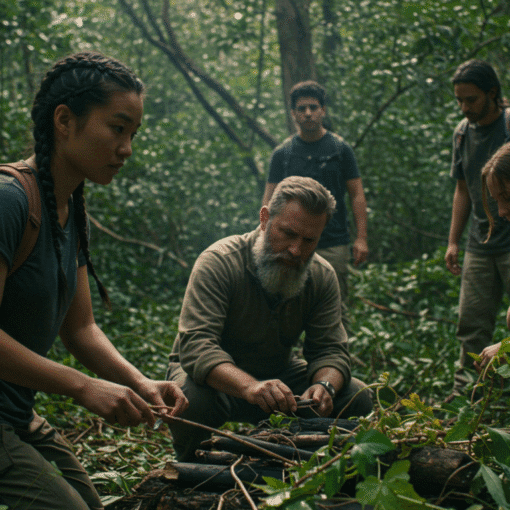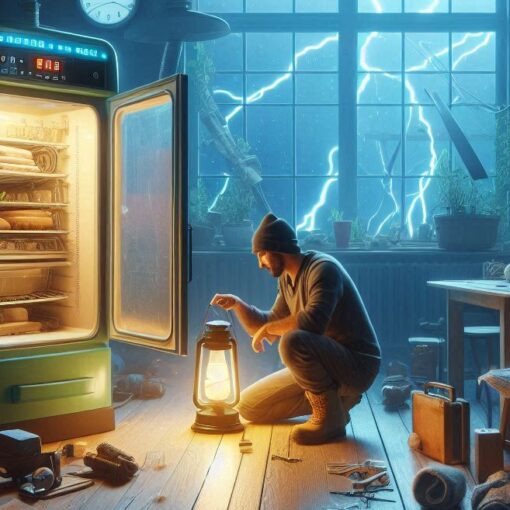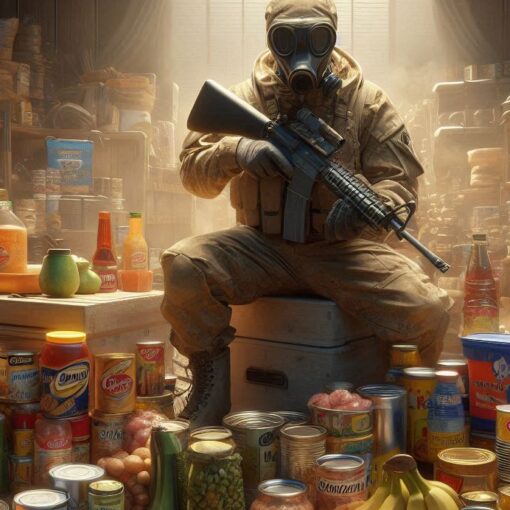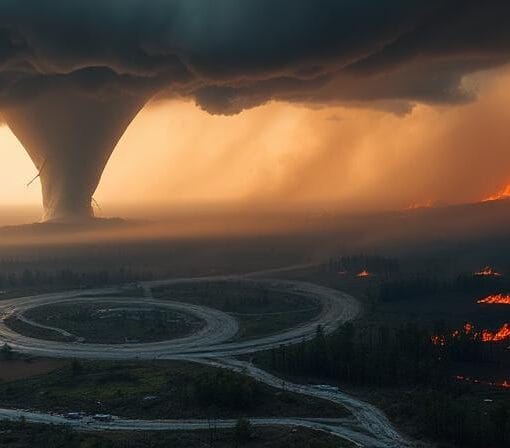Top Takeaways and Key Concepts
- Create a crisis communication plan so everyone knows how to stay connected during emergencies.
- Designate meeting locations your group can find easily if communication devices fail.
- Use backup communication tools like walkie-talkies, radios, or social media when phones don’t work.
- Assign a single information leader to share accurate updates and prevent confusion or rumors.
- Schedule regular check-ins to keep everyone informed, calm, and working together.
Summary of This Article
This article explains why communication is essential during emergencies and how having a clear plan prevents confusion and panic. It encourages families and groups to prepare ahead by organizing contact lists, backup communication tools like walkie-talkies, and easy-to-remember meeting spots. The article also emphasizes choosing a single “Crisis Captain” to manage information, using multiple communication methods when technology fails, and practicing the plan regularly. Finally, it highlights the importance of staying calm under pressure, using humor to ease stress, and keeping communication simple and consistent so everyone stays safe and connected.
Short Video Version of this Article
When something bad happens, everything can seem really out of control. Think about when the Wi-Fi goes out, when there are natural disasters, or when the power goes out. Oh no! You really need a decent plan to stay in touch with your family and friends.
It’s nice to know how everyone is doing. What if Aunt Edna is hiding all those canned goodies again? Or maybe she’s finally strong enough to leave her house when things go wrong. Knowing these things makes you feel like you belong.
Please Note: This post may contain affiliate links. If you click one of them, we may receive a commission at no extra cost to you. As an Amazon Associate, I earn from qualifying purchases.
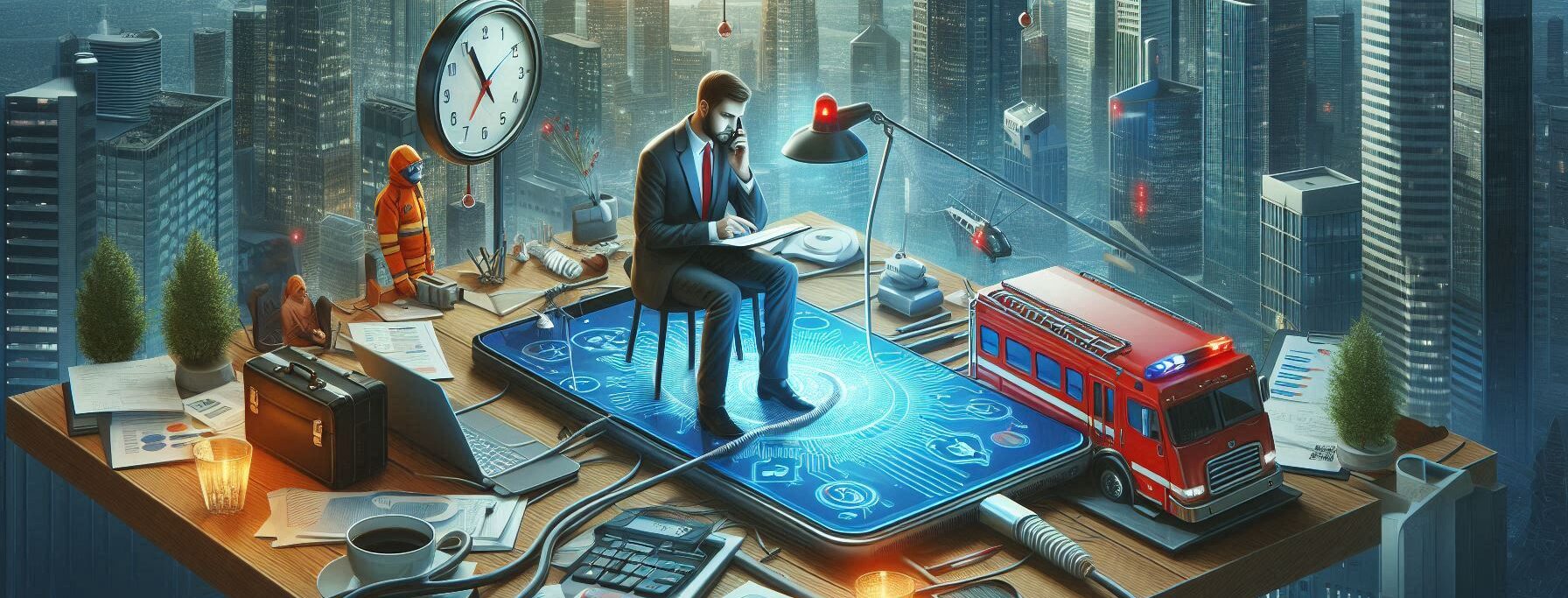
Get a snack that won’t go bad quickly while we talk about this. How about some trail mix or granola bars? Yummy! It’s important to keep communication clear when things are hard.
First, consider about how you’ll get in touch when things get tough. Do you have a list of phone numbers somewhere? If the phones don’t work, what about utilizing walkie-talkies? Those are fun!
You might also set up a place where everyone knows to meet if something goes wrong. If your loved ones can’t get in touch with you, they’ll know where to find you.
Don’t forget about social media, either! Sometimes the internet doesn’t operate well, but it does work well enough for fast messaging. It’s like sending little messages of optimism!
When things get crazy, it’s less worrisome if you’ve thought ahead. Having a strong plan for staying in touch with the people who matter most will make you feel a lot better.
The Importance of Having a Plan
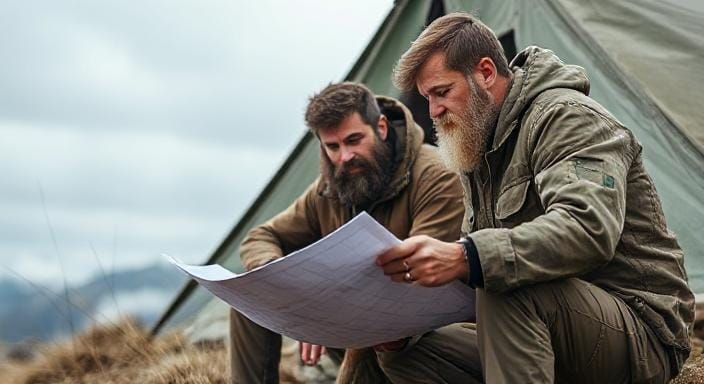
By the way, have you ever tried to find someone in an emergency without a plan? It’s like trying to locate your other sock after doing laundry—nearly impossible! First things first: having a communication plan is essential. This isn’t just about sending smoke signals or using carrier pigeons (although I hear they’re quite reliable).
Your family needs to know where to meet if everything goes south. Imagine this scenario: there’s chaos everywhere, and you’re frantically looking for your kids while they’re blissfully unaware at their friend’s house watching cartoons. You’ll want everyone on the same page about where to go.
A meeting spot can be super simple. Think about “the big oak tree in the park” or even “the porch of our neighbor who always has cookies.” Who wouldn’t want to meet there? Just make sure it’s a safe place where everyone feels comfy.
It helps to pick somewhere easy to remember too. Maybe a fun name like “Cookie Corner” or “Tree of Friends.” That way, if things get hectic, no one will forget where to go.
Now, let’s chat about how you’ll talk to each other when cell towers are down. You know, like when my cooking goes so wrong that I can’t even call for takeout? Walkie-talkies could really save the day! They’re not fancy like phones, but they work great when you need them. Plus, they’re kind of fun to use!
Imagine your family chatting through walkie-talkies while keeping an eye out for any trouble. It makes everything feel a bit lighter during tough times.
Just think about it: you can stay connected without worrying about dead batteries or bad signals. Make sure everyone knows how to use them before anything happens. Practice makes perfect!
Having these plans ready means you won’t feel lost if something goes wrong. You’ll have your meeting spot and your trusty walkie-talkies by your side—just like superheroes ready for action!
Choosing Your Communication Tools Wisely
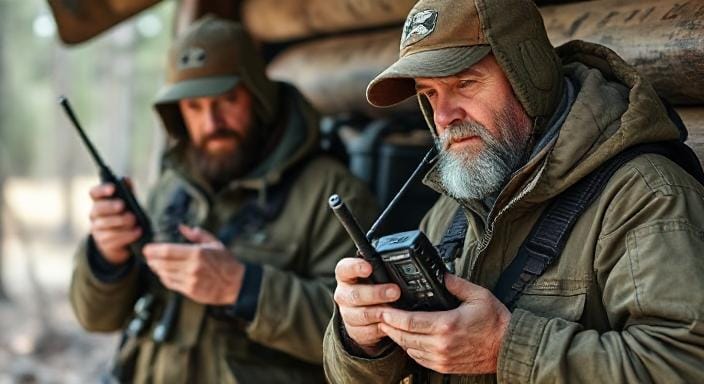
Speaking of tools—let’s chat about what you’ll actually use to communicate during a crisis. Sure, we all love our smartphones; they’re practically glued to our hands! But what happens when those devices decide to take an unexpected vacation due to lack of service? It’s like being left alone at summer camp with no snacks and no friends.
That’s why diversifying your communication methods is key! Consider old-school options like landlines (if you still have one), ham radios, or even good ol’ fashioned handwritten notes passed under doors. If you’ve ever seen “The Walking Dead,” then you know that sometimes shouting through broken windows is just part of the experience.
Also, let’s not forget social media! While it may seem superficial during normal times (who really cares about someone else’s avocado toast?), platforms like Facebook can serve as vital lifelines during crises. Set up group chats or pages specifically for emergencies so everyone knows what’s happening—even if Aunt Edna keeps posting cat memes instead.
Keeping Everyone Informed

Now that we have our plans and stuff set, let’s talk about how to keep everyone informed in case of an emergency. This part can be hard. You know how quickly rumors fly at family get-togethers? Like when Uncle Bob thinks he needs to build a bunker because of something he saw online? Oh no!
It’s very useful to set up clear channels to talk before anything goes awry. Choose one individual to be in charge of the “Crisis Captain.” This person will give you correct information from reliable sources, including the police or the local government. It’s like having a boss who knows what’s going on.
If everyone has their own ideas, things can get out of hand very quickly. You don’t want to panic, do you? So it’s easy for everyone to have one voice.
Another fun thing to do is to establish a list of people to call in an emergency. Add the phone numbers of family members and key services. Don’t forget to order pizza! When you’re hungry, it’s important to set priorities. You should keep this list on paper and on your computer. When we really need it, technology likes to play hide and seek.
Imagine how great it would be to bring out that list when things are wild and discover exactly what you need. It’s nice to be ready! Even when things are hard, keeping communication plain makes everyone feel safe and connected.
The Power of Regular Check-Ins
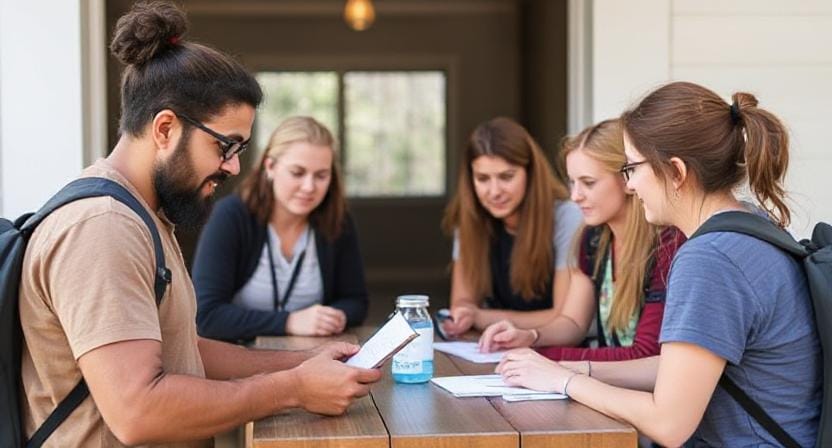
Let me tell you something funny—I learned this the hard way on my last camping trip. I totally forgot where I parked my car. Yup, it was a bit of a disaster! Regular check-ins are super important during any crisis. They really help keep everyone calm and connected.
Setting specific times each day for updates can make a big difference. Imagine saying, “Hey guys! Let’s check in every morning at 10 AM!” This way, everyone knows when to expect news. No more wondering if Aunt Edna made it back from her secret stash of supplies or if she’s lost in her latest knitting project!
It’s funny how those little things can ease anxiety, right? Knowing you’ll hear from each other helps everyone feel safe.
Here’s another tip: use text messaging instead of voice calls whenever you can. Texts usually get through better than calls do when lots of people are trying to reach their loved ones all at once. It’s like a little lifesaver in a busy moment!
So picture this—everyone texting their updates instead of yelling into their phones. Much calmer, right? Plus, you can read texts later if you miss them. Keeping communication simple makes everything easier during tough times.
Staying Calm Under Pressure

It’s really vital to stay cool when things get hard. I can’t say it enough! Don’t panic; it will just make things worse. It makes things confusing and, to be honest, some very bad decisions, like buying much too many canned beans or rolls of toilet paper. Who needs that much?
Everyone can think more clearly when they stay calm. When you’re not panicking, it’s easier to say what you need and make appropriate choices.
Here’s a fun thought: when things get tough, laughter can actually help. Telling jokes or hilarious stories while you wait for news might help lighten the mood. You know how time appears to fly when you’re having fun? It’s a lot better than looking at screens and hoping they come back online soon.
So imagine you and your pals gathering around and telling funny stories about the previous camping trip that went bad, like when someone almost set the marshmallows on fire. Those times of laughter can make the wait seem so much shorter.
That’s it! This is a fast guide to how to talk to people in a crisis when you’re out in the wild and all the tiny problems that come with it. Just remember that staying calm and finding joy in the craziness will help everyone stay strong and connected!
Frequently Asked Questions
1. Why is a communication plan important during a crisis?
A communication plan keeps everyone connected and informed when normal routines break down. It prevents panic, confusion, and missed messages by making sure your group knows how to reach each other and what steps to follow.
2. What should a family communication plan include?
A good plan includes emergency contact numbers, a designated meeting place, backup communication tools like walkie-talkies, and a person responsible for sharing updates. It also includes clear instructions for what to do if someone can’t be reached.
3. What tools can I use if cell service goes down?
Walkie-talkies, landline phones, ham radios, and handwritten notes are great backups. Even social media can help when internet access is limited, as short messages often go through when calls fail.
4. Who should be the main point of contact during an emergency?
Choose a calm, reliable person to serve as the “Crisis Captain.” This person gathers accurate information and shares it with the group to avoid mixed messages or rumors.
5. How can we keep everyone updated without overwhelming communication?
Set scheduled check-in times, such as twice a day, so everyone knows when to expect updates. Use text messages rather than calls to reduce network congestion and avoid constant panic messaging.
6. How do you make sure your communication plan works?
Practice it! Run simple drills to test meeting spots, tool usage, and contact lists. These practice runs reveal gaps and help everyone feel confident during real emergencies.
7. What’s the most important thing to remember about crisis communication?
Stay calm and patient. Clear communication only works when people are thinking clearly, so focus on staying steady, avoiding panic, and supporting one another through humor, teamwork, and preparation.
Suggested Resources:
Emergency Preparedness Guide
https://www.ready.gov/prepare
Crisis Communication Plan Template
https://www.fema.gov/media-library/assets/documents/130556
How To Create an Emergency Contact List
https://www.redcross.org/get-help/how-to-prepare-for-emergencies/make-a-plan.html

Kevin Collier is a seasoned outdoor enthusiast and writer for Trekbug.com, specializing in outdoor adventures, survival strategies, and prepping insights. With a deep love for nature and a commitment to self-sufficiency, Kevin empowers readers to embrace the wilderness confidently. He shares valuable tips, practical techniques, and inspiring stories, helping both novice and experienced adventurers develop essential skills for surviving and thriving in the great outdoors.


